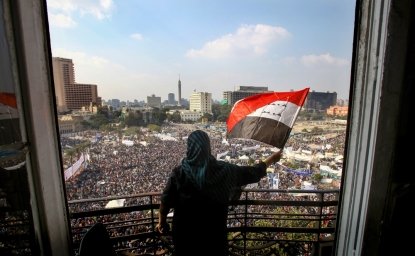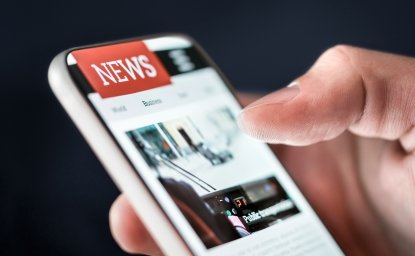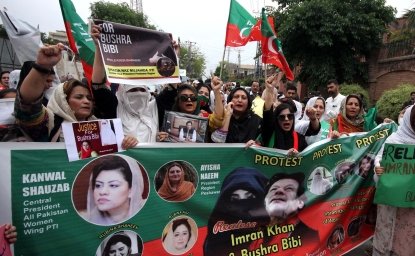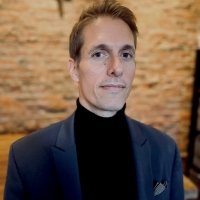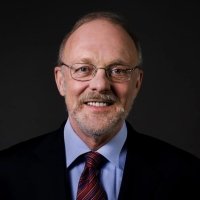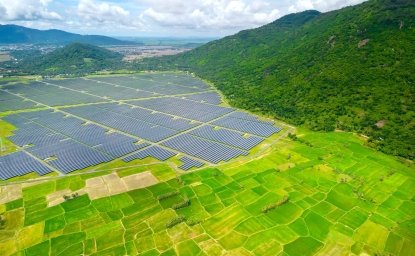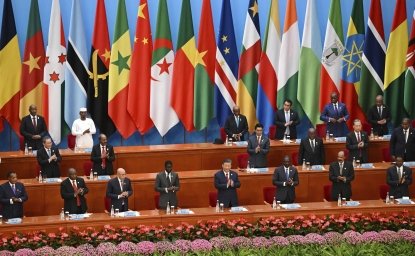THIS IS AN UNEDITED TRANSCRIPT
Hello, I'm John Milewski and this is Wilson Center. NOW a production of the Woodrow Wilson International Center for Scholars. We have three guests to share with you today. Joining us is Franz Baumann, Franz, spent most of his professional life, three decades of it as a United Nations official. His last assignment was as special adviser on environment and peace operations with the rank of assistant secretary general.
He's currently an adjunct professor at Georgetown University. Also joining us, Liana Almony She is deputy director of UNANIMA, the international organization that advocates for women and children experiencing poverty, homelessness, displacement and who are victims of human trafficking, bringing their voices to the United Nations. And Arnaud Kurze, our old friend, is back, a global fellow with the Wilson Center, a history and public policy program.
Arno is also an associate professor of justice studies at Montclair State University. They join us today to discuss the topic of global climate justice. And we'll talk about that in just a minute. But first, allow me to welcome all of you. Thank you for joining us. Thank you, John. Thank you for having me. Welcome, everybody, and thanks for having us here.
Franz, if we could begin with you, it's sort of the big picture overview. What are we talking about when we're talking about climate justice? Well, I actually think that climate justice is about the causes of our addiction, of humanity's addiction to fossil fuels. It is about the beneficiaries. It is about the victims. It's about the costs. And it is importantly, about who pays the costs for humanity's addiction to fossil fuels.
Now, climate justice has several aspects, and we can get to that into that in the course of our discussion. But it is one of distributional equity. In other words, today between North and South, but also about historical responsibility. The West grew rich on fossil fuels, but in the discussion on the impacts of fossil fuels, those who will suffer most, namely people in the global South, the unborn, have no voice.
So global justice, climate justice is to bring these elements together. Is this essentially a new movement? Are we playing catch up when we talk about the impacts of climate change, Those who are suffering the most and how we're responding? I think there is a time delay. Global heating or climate change is actually the flip side of a very great success story, namely the growth of production of consumption.
After World War Two, it's called the great acceleration. When infant mortality dropped, when everybody had the cars, air conditioned houses. And the flipside of that is that we're heating up the environment. And so the time delay of the growth of wealth mainly in the north, will now be felt by people in the global South, particularly people who have contributed nothing to the problem are those that suffer the most because frankly, people in the global north will be able to protect, despite the wildfires, despite everything.
We'll crank up the air conditioning. It will be the people in the global South that will not be able to so easily live with the damage, and that's why they have to adapt. Thanks, Liana. I've learned from our friends at the Environmental Change and Security Program here at the Wilson Center that often it is women who are disproportionately carrying the burden of a lot of what France was just talking about.
Why is that the case? That's right. Well, when we think about climate justice, we also think about climate change as a risk multiplier. So that means whatever background risks and vulnerabilities that people are facing, whether that gender inequity, housing insecurity, extreme poverty, more broadly, those factors will be multiplied in the face of climate change. And as we were just saying, women and girls have the highest risk of experiencing the negative effects of climate change in the fewest options to recover.
And that's largely because of these conditions of marginalization and exclusion they experience before climate shocks and disasters even occur. And that leads to a lack of representation agency power and independence. And it leads to this lowered resilience and adaptation capacity for women. It's also because women don't have the same access to information, resources and support. And it increases their additional risk in the face of climate crises to poor health, gender violence, human trafficking, homelessness and displacement.
So not only are women and girls disproportionately vulnerable to the consequences of climate change, they are also disproportionately vulnerable as a result of the consequences of climate change. We Leonor we often talk about this from a 3000 foot level. We're talking about a couple of degrees centigrade and what we might do to reduce reliance on fossil fuels, but down in the trenches where people live every day.
But what are the needs on the grassroots level? Right. And I think that often the conversation that had the micro versus the macro level, it's actually it's actually similar because people at the grassroots do really care about climate change. We often hear, well, you know, people at the grassroots, they just want food and water. They don't care about climate policy.
But climate change, it really is a very real part of their lives. I actually just got back from a trip to Nairobi. I was there for the United Nations Civil Society Conference, but while I was there, I also did quite a few visits to our grassroots communities there, particularly those and the funds in Nairobi, so in Kibera, in Mukuru.
And actually the timing worked out well because right when I arrived, there were some massive floods. And so when I visited, we saw just how devastating those floods were for the the informal settlement and the people living in them. And what happened was that the the government came in and were demolishing these informal settlements that were along the rivers because they thought, well, you know, it's a safety hazard with all of these informal settlements along the water that was continuing to rise and change location.
What happened was that all of the schools saw a complete drop in attendance during that time period because none of the children would be able to find their parents after they got home from school because their homes were demolished and it would be impossible to get back to them. And so the people at the grassroots are saying we really needed to be include in the decision making and implementation of climate policies, because if we were, we could provide more informed and sustainable support for the communities.
You know, the communities understand what the challenges are. They understand the realities because they've lived it and when they're included in the decision making. You create more informed and sustainable policies. Thanks. I want to ask you a specific question about our topic, but first of all, digress for a minute. And just on the subject of justice studies, your area of specialization is this If within the world of academia, is this a growth industry?
Yes, indeed. And here I'll do a plug, but I hopefully be back. What you just published is fresh off the cell from the imagining a justice in Times of Conflict. And we have a concept that's called justice craft. And so it is a much a much needed craft. And I think green justice, climate justice, we've we've had a number of terms.
Environmental justice are certainly terms that have been circulating, and that is certainly not old wine in new bottles, because I feel like what what France mentioned is Justice Huntsman has wrote a book in the 1970s, a philosopher, German-American, and spanned thought on Right to Responsibility principle. And I think that really sums it up where we where we look at who are the stakeholders who bear the burden of all this and and how do we move forward.
And Liana starts here on really having less of an empowerment approach, but really an approach where you think about participatory governance and doing this at multi levels is really, really important. And to have an and trans sectoral approach is also very, very key because as we know, the European Union, when we think about how it's gone through different iterations of first trying to fend off communism through the steel and coal agreement, because the French were so afraid of the Germans taking over again and then eventually building this political entity, this this polity that eventually brought identities together, nations together, and then through sort of the back door of economic growth and trade, bringing in environmental
issues. And we have that. Liana had a chance to be at a panel in the city a couple of weeks ago where we did talk about the Rocky Mountains Institute's sort of efforts of creating viable corporate entities in terms of compliance with with regards to environmental standards. And and this is very, very technical. I'm no expert in that field, but it reminds me of this cap and trade where you have the right to pollute as long as you have the industry in place that that gives you either the money to buy polluting passes and or if you're a model, you can sell those.
And that's certainly something I want to certainly in our follow up conversation touched upon what's the role of the private sector here and what is the role of sort of society governments? Because it's very, very difficult. And and I've I've been working on the case of Guinea to really seek out these connections between very, very local communities, The farmers on the ground that really know what's happening to their fields, whether that's a drought, whether that's a flood, but then also having potentially technology, a predictive technology that could help them.
But when you look at Guinea's cell phone coverage, there's an artery that runs across east to west and the country with a major road that that has coverage. But then, of course, in the hinterland, there's very little coverage. And if you were to think about crowdsourcing and using technology to make that a key and pivotal measure so that communities can be literally participatory, engaging and monitoring and then responding to these things, then we're we're really moving into the right direction.
I don't know what while we're there, let's let's just pause for a moment on the Guinea example that you use and apply it to this notion of multilevel governance. You know, what are we talking about from the local level? What would be the equivalent of the state level, the federal level, and then also the international community? What does that look like in reality?
Yeah, that's a that's a great that's a great question, John. And so the UNDP and the the Global Environment Facility Fund, which has been in place since sort of right before the Rio conference in 92, so has approximately over its existence, provided over $120 billion in funds to sort of projects. And they they have currently a project going in the forested areas in Guinea, which is sort of the southeastern part of Guinea, bordering sort of Sierra Leone, Liberia and Cote d'Ivoire.
And so here the focus was really very much trying to do capacity building. And and so the problem is, of course, if you don't have the data, you can't provide any any any real recommendations or sort of suggestions in terms of how some of these issues, whether there was a flood and how the best have the right crops to get the yield that's necessary to to create sustainable farming practices that take into account climate risks.
And so I think what what this project that just started, I think a year or two ago and will run for five years is really trying to achieve. It's also creating these information hubs so that people have access to it, whether that's a local authority, a municipality or a community and and based on that sort of have a structure in place with the Ministry of the Environment and Sustainable Development as well as then with the international partners to really home in on on some of these more at risk populations.
And knowing that 70% of the population in Guinea is dependent on agricultural farming practices oftentimes for sustainability purposes is therefore key. And I think when we think of, well, I mean, is the least the whiteman's burden, right? So when when one sort of IMF folks or big food and agriculture organizations, technocrats went in in the early years and had sort of very high modernist plans that would be very cookie cutter and not necessarily contributing to sort of end and responding to the direct needs of these populations.
I think we've we've made a quantum jump or a leap in in the right direction. But again, this is just one or a handful of projects that need to become the norm in terms of seeing, seeing progress and seeing what my friend said earlier, sort of a burden, sharing the responsibility. And then I think of France and I had a conversation where we talked about the and then also about the loss and damage fund dried, where we have about $700 million in there right now.
But but but if you think about how little that is in terms of the the big burden of responsibility that that these developed countries have and how little they're willing to pay in there. That raises my question here. In terms of that, I want to also throw out to to my colleagues and peers here. So what is the corporate responsibility?
Right. Not only from the governments, but in terms of what what a corporate entity has to do. And the Supreme Court just asked the Biden administration to weigh in on sort of a case in Hawaii, right where the state is suing sort of corporate entities and corporate entities fighting back and saying like, no, we cannot do this. And so we we certainly live in interesting times.
And it'll be very interesting to see how this pans out. Overall. We're going to take take you up on hearing from Frans and Liana on this question of the role of the private sector in other things. But but first, I think I'd want to leave anybody behind who may not be as familiar with the things we're talking about.
So, Frans, could you talk about that loss and damage fund that was established at COP 28? Tell us what that is. Arnaud just mentioned the $700 million sitting there, but a drop in the bucket when you consider the gravity of the situation where not only the gravity of the situation, but when you also consider the profits, record profits of the oil companies.
You know, that was about $200 billion and we're talking less than $1 billion, 700000 to 700 million. That is the equivalent of the annual income of the football player, Ronaldo or Messi. In other words, the biggest donor was France and Italy, $109 million each. Messi makes about 250 a year million a year. So it is completely disproportionate. But before we even go there, John, allow me to mention 52 years ago last week in early June, in 1972 was the first U.N. Environment Conference in Stockholm, Sweden.
It was chaired by Maurice Strong. Later he was my boss and that was under the motto that one Earth thinking globally, acting locally. So what our no is telling us is indeed the efforts of people on the ground in Guinea to deal with the problem that they have not caused. Now to come to the loss and damage fund, it was very clear that helping countries to avoid the fossil fuel intensive parts of development that Europe, North America, Australia, Japan took was actually in our own interest is Africa does not have to go through coal fired power stations can go directly to solar is like skipping the landline phone and going directly to cell phones.
That is very much in the interest also of the global north because carbon dioxide is universal. It doesn't matter whether it gets burned in Guinea or in Geneva, carbon dioxide that goes into the atmosphere heats the environment everywhere. So it is a matter of justice and equity that the damage caused. Many things are not recoverable. Certain losses, for example, I think in our lifetime Bangladesh will be flooded.
That loss cannot be recovered, but there are losses of damages that can be recovered and indeed the fund was set up last year. It was actually set up two years ago, but it was formally introduced in Dubai. It has now $700 million in it. It is open for more contributions. The US gave $50 million indeed is a drop in the bucket.
There are now discussions actually going on this week as we speak in Bonn, Germany, to prepare for the next cop in Azerbaijan. The idea is that money is in. That fund will be given to those suffering most one last sojourn, if I may. One of the problems, of course, loss and damage is absolutely fair and just, but it also takes away from mitigation, from reducing the damage.
It accepts that the damage is happening. So instead of reducing the damage, we are paying for the bandaids. And but this is where we are paying into loss and damage is better than not paying at all. But it is not a solution to the problem of global heating. Leon, I want to ask you about something that's come up in our discussion, which is, you know, and you think of discussions of displaced people and refugees.
That is a huge issue in the world currently. One of the movements we've seen is an attempt to bring those in the front lines who are actually the most affected by this, these peoples to the table to be part of the discussion. Let's apply that notion to this whole idea of climate justice. Are the people who are most affected.
Do they have enough seats at the table? You know, I think that's a great question and the answer is no. And even tying it back to the discussion on the loss and damage fund, you can see that the climate finance flows and the financial architecture that we're putting towards these initiatives, they're still largely exclusionary to women, girls, indigenous people, disabled people, and they often the existing economic and financial systems continue to benefit those in power in society rather than society as a whole.
And even though, you know, I was actually at COP 28 as a representative of unanimous international, and while gender equality was certainly on the table, it was a big topic of conversation throughout. There was a day, a thematic program that was specifically dedicated, dedicated to gender equality. It's there in dialog, but you don't necessarily see it in practice and in practical inclusion at the table.
Women are still extremely underrepresented at the decision making table, and especially women with lived experience of, like you mentioned, climate displacement or the compounding vulnerabilities that make people so vulnerable to climate displacement or, you know, the shocks of climate change more broadly. And while the loss and damage fund in the decisions at COP 28 were really celebrated as being some of the most monumental decisions that have been made since since the Paris Agreement.
But we see that only 3% of climate development aid prioritizes gender equality, and women's organizations continue to lack the financing need to to be on the front lines of climate change and to really not only build resilience, but also to mitigate and to to adapt. And that's why the loss and damage Fund really needs to be operationalized in such a way that it reaches the people that need it most.
Climate funding rarely reaches individuals, and especially rarely reaches women and often lacks that kind of gender lens that's needed for it to be truly effective and support these communities. Brands use the term Band-Aid when talking about the situation that we're dealing with, where we're no longer trying to prevent things or now trying to mitigate or build a resilience or whatever the case might be.
You've all been part of this discussion long enough to know there was a time not too long ago where we were talking about the potential for some of the worst impacts. Now we're living through them. We're beyond theory. We're seeing it happen. And I know I want to be careful about the science. I know it's difficult to draw a straight line from, say, killer tornadoes in the U.S. to climate change, but we're getting enough anecdotal evidence that we're getting enough things happening that clearly some of the things that have been predicted are happening in the context of what we're talking about today.
If each of you could talk about that, we're are we in attempting to apply solutions? Are we in the Band-Aid stage? Is this sort of triage where you drive up to the scene of the accident and people are bleeding? So the first thing you have to do is stop the bleeding. You know, can we be thinking long term or are the acute needs such now?
Now we have to just put out the fire. And I'm sorry for mixing metaphors all over the place. There are no. Why don't we start with you on this question? Sure. And as you all know, I'm I'm joining you guys from the Library of Congress at the Click Center, where I have a fellowship here on digital studies and I also have been digging through some archival work and looking at the awareness or the consciousness of and green or environmental focused sort of awareness from from society.
And what I've realized for a first for Guinea, but then there was less resource available. So I've stretch just to sort of West Africa. I mean we had a high modernist thinking that was certainly in an anti-colonial discourse mixed with then eventually a very sort of independent thinking, but it was very geared towards the economic survival and political alignment.
And so I'd say in terms of how we respond today to these these issues, when I did a focus group last year in September in Guinea, I mean, the idea that climate crisis and climate global warming, climate heating is a thing doesn't hit sort of deaf ears in the Guinean population. But to be true and honest here, the the issue that the local populations are currently fighting are those, for instance, of environmental pollution that is done by the mining industry.
And while they have laws too, we talk about the loss and damage fund. They do have a fund also by the national government for reparations. Most of people don't know about this, so their NGO, those that then work critically to educate the local populations so that they can have access to these funds. And so again, when we look at sort of a broader global picture and that probably Liana and Frans can can contaminate there as well.
The issue is we have an awareness while in the developed world we might have sort of a climate fatigue and, and in some of the developing countries there are other more pressing issues for these local populations so that it's quite difficult to balance the awareness strategy with then practical implementation. And that's why I mentioned earlier and go full circle here, this issue on multi level of governance, right?
You need to mobilize all the stakeholders and they need to, like Liana said, they need to sit at the table together with the same rights. And and of course, there's always going to be in power imbalance but trying to reduce this. So that first it gets mitigated. Right. Anything, any risk or dangers can be addressed. But then also how can we then adapt for the future?
What are some sustainable practices that are most successful for smaller communities? If the rural, then they need to be done. For instance, we're working on also an idea where if if access to water is difficult and we don't have electricity because of the lack of infrastructure. So when the French left Guinea in the in the fifties, they literally screwed out the last light bulbs and said like, you want to be independent, We're taking everything with us.
Right? And so the consequences are still visible today. And so I feel like here the ideas of implementing a solar energy, right, having these mobile units and still produce enough autonomous energy for smaller communities are certainly a great a great way forward. And so I think there's a trickle down effect where the awareness is increasing and in order to create these resilient communities and populations, I think that awareness needs to be greater.
So events like this are really, really key. Thanks, John, for inviting us. And and I think we we certainly do need to to then have also actions that that tie in so that these trans sectoral approaches, whether that is the private sector, the governments and then and then community and or civil society organizations. Bronson we got a lots to comment on there.
And so rather than me directing you, I'll just give each of you a chance to weigh in with what's on your mind as our conversation. First, ladies first, your gentlemen, as always, France. Thank you. Well, and thank you, Arnaud, for for bringing those points up because I think you're exactly right and that ensuring that the needs and concern and unique realities of the most vulnerable to climate change, women and girls, making sure that those needs are adequately addressed is crucial for improved climate governance outcomes at every level.
And I think mitigation, adaptation, resilience, there are all kind of different sides of the same coin. And when women have the opportunity and the resources to be involved in climate action, you see them enact policies or enact measures in their own communities that really help, that really help mitigate. You know, women have been at the forefront of sustainability movements and sustainable practices for decades.
And it was actually women have been calling for more sustainable practices long before this was, you know, a conversation on the global agenda. We have heard from our woman at the grass roots that this is something that they've been concerned about for decades and decades and decades because they've seen the impacts already on on, you know, the most micro of levels.
And I think, too, that the resilience and vulnerability are the the same sides of different points. So when we build the resilience with honorable people, they'll be able to mitigate, they'll be able to adapt. And having that resilience will will be more than just a bandaid on it. It'll ensure in long term that the solutions are sustainable, that they're informed and in fact is brought.
Well, thank you. Global heating is the gravest, the greatest global public policy challenge that humanity has ever faced. It is global and it is political. This was recognized already in 1988 by the U.N. General Assembly when it passed its first resolution on climate change. It led then to the real summit in 92, where this was very clearly understood and defined.
So there is scientifically, there is no question. However, since real 30 years, 32 years ago, more carbon dioxide has been emitted than in all of prior history. In other words, the problem is recognized but is accelerating. Since the Paris Agreement, I saw a report from the Rainforest Network exactly a month ago that $7 trillion have been pumped into extraction of fossil fuels.
In other words, the problem is accelerating. We are not getting a handle on it. Global heating is very much a political and an economic problem, but it is even more a problem of physics. And physics is quite indifferent to political calculations or political complications or timetables. And that is what concerns me very greatly, is that there are solutions and the science is becoming has become much more granular.
The models are proving to be not only accurate, but a bit on the conservative side, because scientists don't want to be alarmists. But we are to use this image in the train that is going high speed and we are walking in the train in the other direction from the engine to the back of the train. But the issue is still accelerating.
So one thought and I'm dealing with it academically, not are not like you on the ground or listen to this. Women are dealing with it from a global political perspective. And my concern is simply that from a human understanding point of view, this is going extremely fast. But the geological point of view, we are in a crisis that we do not know how to stop, so that the political machinery that we have is still nationally organized.
And despite the wildfires in Alberta or in California or the flooding in Germany or the fires in Greece, there is and we are electing people, people are being elected that are in denial about the problem. And so that how can a global problem will be solved when the national constituents are actually going in the other direction. And to the conclusion.
Sir Nicholas Stern, who in 27, 2007 for the British government, produced a stern report. He was asked, What is climate change all about? He essentially said that the world's governments can choose between three options. One is mitigation, reducing the problem. And he said mitigation is avoiding the unmanageable. Then adaptation, which he called managing the unavoidable or suffering. In other words, mitigation, adaptation or suffering.
And the jury is it will be a mixture of the three. And the jury is out which of the three mitigation, adaptation or suffering will actually be the strongest of the elements as we go forward? You know, I sit here with a and I'm sure you are showing that there is a sense of being overwhelmed by the enormity of what we're talking about.
You know, in the in the time remaining, I want to give each of you an opportunity for a final thought. And one let's do it in reverse order of introduction. So I know you'll go first. Then I would ask any final thoughts you want to add in concluding. But also if you would add to that, you know, you mentioned earlier, Arnaud, that a forum like this can create awareness and it gets more people at least thinking about it, talking about it.
Where can those people who are most interested go for more information? And I'd ask each of you to tag that on to your final thought response. Where would you direct people who care enough to go deeper and to get involved? What are some of the best sources that you can recommend to them? Arnaud, you're up. Thank you so much.
And I want to take that opportunity to sort of piggyback on on the suffering notion. And I think we can can certainly alleviate some of the suffering, especially for those who haven't also gotten a seat on the table. And that's also a lot of sort of gender and sexual minorities. We haven't talked about those. And and that's and certainly even though it's a minority.
I mean, the problems are here and especially in the developing world. But there are studies out in terms of the U.S. because of the lack of visibility, housing, mental health, the toll is quite, quite difficult here. And so to to keep that in mind and sort of to produce also also scholarship here, I think in terms of resources, right.
To the the websites that are available through through the UN system are certainly great. But I feel like social media platforms, however, demonizing, they are right. If you watch enough climate related issues, you'll be bombarded with that, right? So It can also have it's good it good impact when you're when you go on these platforms and certainly reach out to any of us will happy to provide these these informations in terms of events and or Montclair State has a has a whole PhD program on environmental science and management right that that is very much geared towards finding practical solutions here and we're happy I was on the selection committee and we are awarding over a
dozen of the applicants a ride so that they can solve some of these problems at the local and or national level so that we can find broader consensus and solutions, not if, you know, this is no time for humility. I mean, the three of you as individuals and the organizations you represent, the institutions you represent are all great sources.
And in answer to the question that I asked and Arnaud, thank you also for bringing up the other marginalized groups. I should mention we're recording this during Pride Month one study about LGBTQ plus people in this. They're on average, more exposure to climate change related disasters, more susceptible to the adverse impacts of climate related disasters, and have fewer resources to recover.
So worth mentioning as well. Liana, you are up. Thank you. And you know, I thought I might take the opportunity to push back a little bit on something that Fran said, which was that, you know, we're facing all of these these crises. We're seeing the real impacts of the the climate change that we've seen coming down the track for years.
And I think we have known what to do. We've known the solutions. And like you mentioned, we've really just lacked the political will and we've also failed to really address the realities of the people who are most vulnerable to climate change. And I think that leads us into this loop, this cycle of of not learning from history and repeating mistakes and new ways, even back to the conversation on climate financing, saying even some of the gender responsive climate finance systems that are in place, they're really loan based.
And so it creates these systems of debt for women who, for example, are trying to mitigate against climate change and creates this this unequal system where they are indebted to, you know, these global north institutions. And it creates this system that sends them back into poverty. And so I think that we know what we need to do, and it's more about mobilizing resources, mobilizing political will.
I'm a very optimistic person by nature, but I think being in the human right, social justice space, you kind of have to be and I don't think it's I don't think it's too late. I don't think we're past the point of mitigating. And we're only in the phase of adaptation suffering now. But of course, time is of the essence.
We know this. The clock is ticking and we need to move past it. Just all the talk and the clock in our silos, because it often feels like at the U.N., in the human rights space, in the foreign policy space, we're just talking to the echo chamber. And so exactly like our knows that it's so important that we make sure that these messages are being sent out to the to the broader community outside of those who are already informed about the issue.
And on that note, I'm trying to think about resources. I can direct everyone to. Unanimous international conducts quite a bit of research. We're currently working on a seventh publication on Homelessness and displacement. It will also touch quite a bit on climate displacement and the gendered impacts of climate change. So keep an eye out for that. And you can also see our previous six publications on our website, the NGO Committee on Migration, which I'm a member of the Executive Committee for, also has a subcommittee on Climate Climate Change, which has some great resources on their website and on social media and maybe I can reach out with a list later that can be linked here.
But some of the grassroots organizations we work with have really compiled some great and accessible resources that are meant for their grassroots communities that are, you know, more tailored to that audience. So I'd be happy to share those as well. Terrific. Thank you. Thank you. And France, when Liana was talking about the lack of political will and earlier you talked about maybe voting for the wrong people when it comes to addressing this issue.
I couldn't help but think of the classic Pogo comic strip by Walt Kelly back during the first Earth Day where the tagline is, I've seen the enemy and it is us with you.
Well, you know, Frederick Douglass says that political nothing was ever given without a fight. So indeed, this is a political fight. And I don't think it is over yet. But it is an uphill battle. You look in Germany last Sunday, were elections to the European Parliament, the Green Party went it was the numbers of boats were cut in half, which is actually a sign that there is succeeding.
Things are moving in the right direction and the opposition is being mobilized. So technology is making major strides.
Solar and wind are extremely the cheapest source of energy right now anywhere in the world. And that will accelerate and it will on its own already bring certain solutions. And so on. People have to understand and people have to learn the resources. I think the coverage on climate or environmental issues in the New York Times or in The Washington Post or in The Guardian, The Guardian every Thursday has something it's called down to Earth, which is a magnificent summary of articles on on climate.
I think empowering is to understand, to learn, and also to work with people in a like minded community who are working on the issues. I think in America there are several of the 350 dot org. There's something called Carbon CRU, which is addressing people not only as consume mass that they should use less plastic and maybe less meat and whatever, but also that they are empowered as citizens, that they take an interest in the community and that indeed they understand the platforms that they vote for.
The right people are they actually run for office. So this is, I think, empowering not just to sit there and think it is all terrible. It is a lot of work. People have to learn, understand and get engaged and look for people who are on the same wavelength and then do the right thing. It might not make a big difference, but it certainly is psychologically very empowering and it is I find it beautiful also to teach at the university if people take my climate course because they want to understand and then they go home and talk to their grandfather and maybe they have an impact there.
Well, thank you, Franz Baumann, Liana Almony, and Arnaud Kurze, say thank you very much for a very provocative and interesting conversation today. Best of luck with your work as you continue. Thanks so much for having us. Thanks. We hope you enjoyed this edition of Wilson Center now and that you'll join us again soon. Until then, for all of us at the Center on John Milewski thanks for your time and interest.


